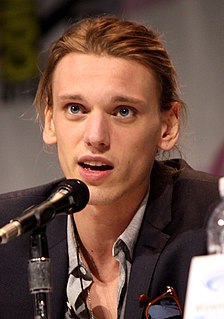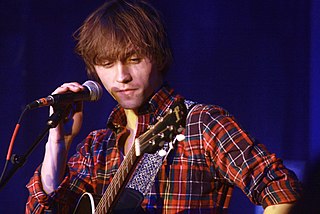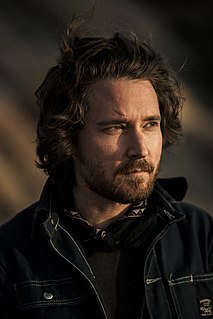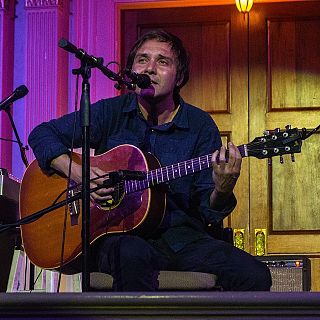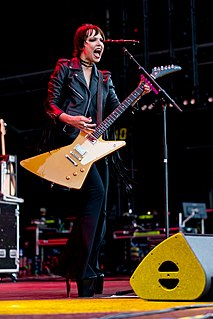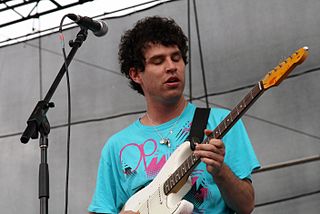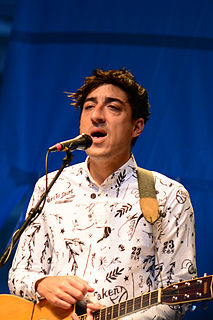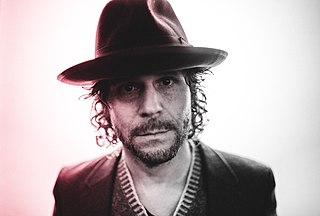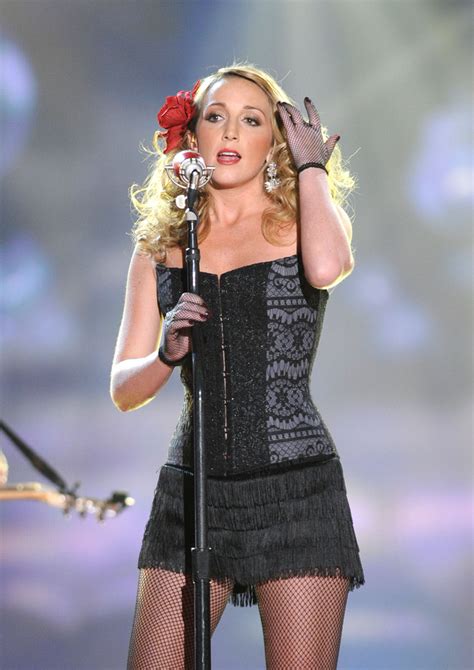A Quote by Jamie Campbell Bower
I'm working on my music a lot, like folk singing, guitar. It's sort of rocky, folky, alty, angsty. I'm putting a lot of energy into that.
Related Quotes
I'm sort of old-fashioned in the sense that I like to write something that I feel I could just perform alone, obviously, because I do that a lot in concert. So I try to make a song where there is as much that is as distinct as I can get it, just if I'm playing it or if I'm singing it. That makes me really do a lot of stuff in the guitar work when I sit and try to figure out how to indicate what sort of dynamic I'm aiming for. Where, rhythmically, I want to go. That's sort of what ties a lot of different records together, is that it's usually always based around me singing and playing a guitar.
I think there's a difference between the type of folk music that people put into the box of "folk music" and then there's the kind of folk music that I aspire to and am in awe of, and that is the kind of folk music where it's very limited tools - in most cases a guitar, in a self-taught style that is idiosyncratic and particular to that musician.
I was pillaging a lot of music that had nothing to do with guitar playing, using a lot of strange tunings and voicings and chord structures that aren't really that natural to the guitar; I ended up developing a harmonic palette that's not particularly natural to the guitar because I was always trying to make my guitar sound like something else.
I believe that the greatest music is storytelling anyway, in a heightened medium. So I write a lot of music, and I play a lot with my guitar, I still sing a lot, but now I'm more personal about it than public, in a way. I think there will be a time where I'd like to bring the singing back into some of my performances. It all depends if the material's right, if the story's right, if it's my kind of taste in music, as well. It means so much to me. We all know how affective music can be, I just want to make sure when I do it, I'm doing it because I actually feel it and I care about it.
My music doesn't really sound like punk music, it's acoustic. And it doesn't really sound like folk music 'cause I'm thrashing too hard and emoting a little too much for the sort of introspective, respectful, sort-of folk genre thing. I'm really into punk and folk as music that comes out of communities and is very genuine and very immediate and not commercial.
It's weird, in New York, it's like the big theme of everything is folk music and interacting with people. Maryland is where the landscape of our music comes from, it was more like, let's walk around. People are saying that we are part of some sort of folk scene. We don't feel connected with it. We do live in the city, and communicate with people. It's all folk music.
Now any person who plays an acoustic guitar standing up on stage with a microphone is a folk singer. Some grandmother with a baby in her arms singing a 500-year-old song, well, she's not a folk singer, she's not on stage with a guitar and a microphone. No, she's just an old grandmother singing an old song. The term "folk singer" has gotten warped.
I used to work in the cotton fields a lot when I was young. There were a lot of African Americans working out there. A lot of Mexicans - the blacks and the whites and the Mexicans, all out there singing, and it was like an opera in the cotton fields, and I can still hear it in the music that I write and play today.
I read a lot - surveys of vernacular music. A lot of it is the Harry Smith Anthology of American Folk Music, which I've loved since I was in high school. They had it at the library and I always thought that was interesting, even when I was into punk and stuff. Just the history of storytelling and the amount of melancholy a lot of old music has.
